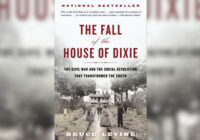Political correctness strikes again, taking out an overenthusiastic basketball announcer.
Public behavior includes not only the acts people engage in, but also the language they use. If a community’s laws regulate acts, the unwritten law of PC — political correctness — regulates the language people use in public and sometimes in private. Brian Davis, the official broadcasting voice of the basketball team the Oklahoma Thunder, blurted out in a moment of enthusiasm the expression, “out of his cotton-pickin’ mind” after a particularly well-executed play by the team’s star, Russell Westbrook, who is black.
Social media reacted, Davis was punished by his team with a suspension of one game, and he offered the following apology: “It is with great remorse and humility that I accept this suspension for the insensitive words I used during Wednesday’s broadcast.”
Here is today’s 3D definition:
Insensitive:
Failing to take into account the aggressive nit-picking of people looking for opportunities to express their righteous indignation as monitors of acceptable language through social media
Contextual note
As the article points out, the utterance “has a colloquial history in Southern parlance,” which means it is part of the everyday language in the southern state of Oklahoma. As it is commonly used, the expression is no more than what linguists call an intensifier — “a modifier that makes no contribution to the propositional meaning of a clause but serves to enhance and give additional emotional context to the word it modifies.”
It requires special intelligence, real cultural savvy and a minimal level of malevolence to consider that using a word that “makes no contribution to propositional meaning” constitutes proof of a guilt (in this case, the sin of racism), or even of the insensitivity Davis was forced to confess to. One has to be out of one’s cotton-pickin’ mind to make a public case of it.
When interviewed, Westbrook, the designated victim of Davis’s “lapse,” seemed embarrassed to be saddled with the public duty of criticizing Davis. Westbrook explained without a hint of emotion, “What he said wasn’t OK, and we all understand that.” A good translation of this would be, “We are all required to play the game of PC with the same seriousness as we play the game of basketball, but this means absolutely nothing to me.” All, however, had to agree that the suspension was an “appropriate” punishment for the intensifier he employed in his spontaneous praise of Westbrook’s talent.
Historical note
Cotton picking is now done by machines, but it used to require human hands. The economy of the Southern states attributed that role to African slaves, but poor whites also picked cotton, especially before the spread of slavery and after its abolition. In other words, there is no automatically racial association with the word “cotton-pickin’” — unlike, for example, “the n-word.” If it has any literal meaning at all, which intensifiers by definition never have, the notion of picking cotton serves as an indicator of a lowest common denominator, which means it is inclusive. White Southerners who use the expression apply it to whites even more frequently than to blacks, simply because they use it indiscriminately as an intensifier and, statistically, they comment more often on the behavior of whites than blacks.
 What can explain the recent trend to punish anything that can vaguely be suspected of reflecting the racism of the past? Some psychologists would say that shaming someone else’s supposed racism may be a way of hiding one’s own. They even have a name for it: “stereotype rebound.”
What can explain the recent trend to punish anything that can vaguely be suspected of reflecting the racism of the past? Some psychologists would say that shaming someone else’s supposed racism may be a way of hiding one’s own. They even have a name for it: “stereotype rebound.”
But other phenomena are at play. In a culture where alienation has become the rule, in which governments, lobbyists and corporations — including “platforms” like Facebook and Twitter — make all the decisions on the basis of their established position, supposed professionalism and access to crucial resources, the feeling of power one gets when censuring others may be the last opportunity ordinary people have for feeling they have some control or influence over their environment.
We could cite another prominent feature of US culture: Biblical literalism and its secular partner, constitutional literalism. Both assume an absolute basis of meaning in words that no serious linguist would entertain. Consequently, the duty of everyone speaking in public — even when broadcasting a basketball game — is to be aware of the risk of being deemed “insensitive” when failing to appreciate the idea of meaning some people have in their heads.
*[In the age of Oscar Wilde and Mark Twain, another American wit, the journalist Ambrose Bierce, produced a series of satirical definitions of commonly used terms, throwing light on their hidden meanings in real discourse. Bierce eventually collected and published them as a book, The Devil’s Dictionary, in 1911. We have shamelessly appropriated his title in the interest of continuing his wholesome pedagogical effort to enlighten generations of readers of the news.]
The views expressed in this article are the author’s own and do not necessarily reflect Fair Observer’s editorial policy.
Photo Credit: file404 / Shutterstock.com
Support Fair Observer
We rely on your support for our independence, diversity and quality.
For more than 10 years, Fair Observer has been free, fair and independent. No billionaire owns us, no advertisers control us. We are a reader-supported nonprofit. Unlike many other publications, we keep our content free for readers regardless of where they live or whether they can afford to pay. We have no paywalls and no ads.
In the post-truth era of fake news, echo chambers and filter bubbles, we publish a plurality of perspectives from around the world. Anyone can publish with us, but everyone goes through a rigorous editorial process. So, you get fact-checked, well-reasoned content instead of noise.
We publish 3,000+ voices from 90+ countries. We also conduct education and training programs
on subjects ranging from digital media and journalism to writing and critical thinking. This
doesn’t come cheap. Servers, editors, trainers and web developers cost
money.
Please consider supporting us on a regular basis as a recurring donor or a
sustaining member.
Will you support FO’s journalism?
We rely on your support for our independence, diversity and quality.








Commenting Guidelines
Please read our commenting guidelines before commenting.
1. Be Respectful: Please be polite to the author. Avoid hostility. The whole point of Fair Observer is openness to different perspectives from perspectives from around the world.
2. Comment Thoughtfully: Please be relevant and constructive. We do not allow personal attacks, disinformation or trolling. We will remove hate speech or incitement.
3. Contribute Usefully: Add something of value — a point of view, an argument, a personal experience or a relevant link if you are citing statistics and key facts.
Please agree to the guidelines before proceeding.